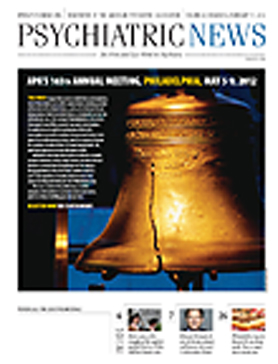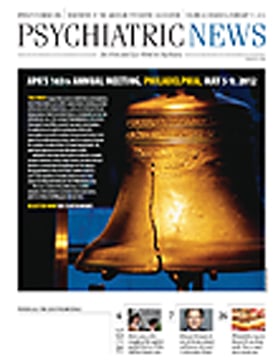With over a million Americans infected, and people with mental illnesses at much higher risk for infection, most psychiatrists are likely to see HIV-infected patients. Learn more about what makes assessment and treatment different in the HIV-positive population by attending one of these programs.
SUNDAY, MAY 6
Noon-4 p.m.
For Residents: The Sixth Vital Sign: Assessing Cognitive Impairment in HIV-Infected Patients
This workshop is designed to help residents diagnose, treat, and manage patients with, or at risk for, HIV/AIDS. Faculty will provide an overview of the psychiatric disorders most common in HIV-infected patients, with particular attention to symptoms and signs of cognitive decline and its treatment.
Franklin 5, Level 4, Philadelphia Marriott Downtown
MONDAY, MAY 7
9 a.m.-Noon
Introductory: The Impact of Psychiatric Disorders in HIV Disease
In this symposium, faculty will present basic information in the direct care of and support for the HIV patient, including discussion of CNS dysfunction; assessing and monitoring patients for the neuropsychiatric consequences of HIV; thought disorders; mood and anxiety disorders; sleep disorders and insomnia; and pain. Six 20-minute sessions will be followed by a question-and-answer period and case discussions.
Room 121C, Level 1, Pennsylvania Convention Center
2 p.m.-5 p.m.
Advanced: Psychodynamics of Trauma, PTSD, and Nonadherence to Medical Care in Persons With HIV and AIDS
In this symposium, faculty will present the psychodynamics of nonadherence to care in individuals with HIV, trauma, and PTSD. The assessment for trauma as well as diagnosis of PTSD will be clarified along with recommendations for special approaches to care that can lead to improved adherence and decreased morbidity and suffering.
Room 121C, Level 1, Pennsylvania Convention Center
TUESDAY, MAY 8
9 a.m.-Noon
Advanced: Update in HIV and AIDS Psychiatry
This program is designed to provide an update in AIDS psychiatry for consultation-liaison psychiatrists, general psychiatrists, and mental health clinicians. Understanding the psychiatric aspects of HIV and AIDS can provide psychiatrists with the skills to prevent risk behaviors, decrease morbidity and mortality, and reduce suffering in those infected with and affected by HIV. The diagnosis and treatment of HIV-associated and multimorbid psychiatric disorders through the life cycle will be discussed.
Room 121C, Level 1, Pennsylvania Convention Center
2 p.m.-5 p.m.
Advanced: HIV Neuropsychiatry
Participants will receive an up-to-date medical review (including the most recent advances in antiretroviral therapy), discuss the assessment and diagnosis of neuropsychiatric disorders, and identify the most current and effective psychopharmacologic treatment options.
Room 121C, Level 1, Pennsylvania Convention Center 

